Montenegro between Russia and the European Union.
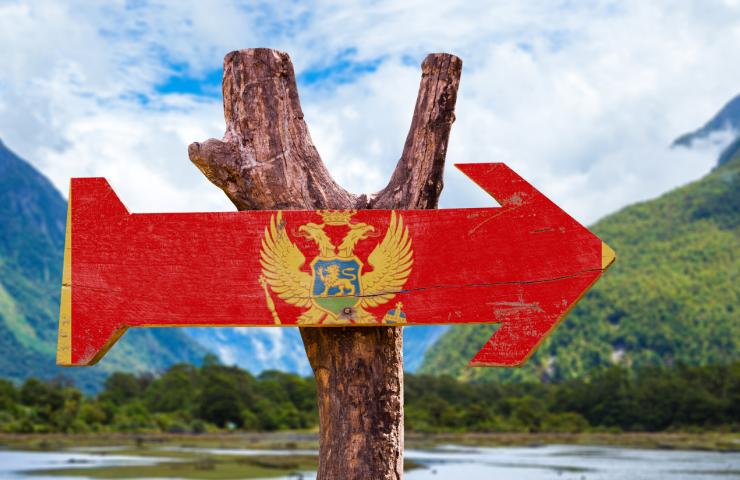
Montenegro is a small but strategic Balkan state, a member of NATO and a candidate for entry into the EU, with dependence on the Russian capitals of oligarchs close to the Kremlin. Will the country be able to reduce Russian economic influence and support the reforms needed by the European Union?
Montenegro obtained independence from Serbia in 2006 through a referendum, accepted by the international community and also by the Government of Belgrade, a process wanted by the “dominus” of the country over the last twenty years, Milo Dukanovic.During the Balkan wars of the 1990s, Dukanovic was a close collaborator of the Montenegrin President Bulatovic, loyal to Milosevic, but after the Dayton agreements of 1995, he espoused positions, supported by the West, in favour of Montenegro’s independence and its rapprochement
with the European Union.
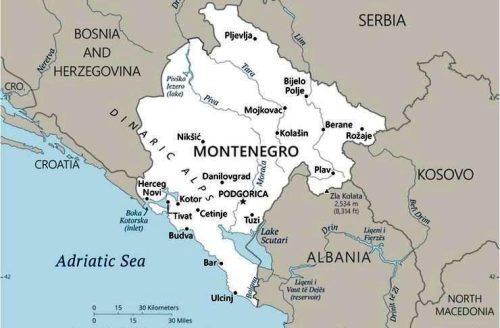
Russia, on the contrary, did not appreciate the separation of Montenegro from Serbia also due to fears of Podgorica’s future entry into the Atlantic Alliance, a decision taken by the majority of the states of the former communist bloc between the end of the 1990s and the early 2000s.
Entry into NATO, which took place in 2017 following the Parliament’s decision in 2016, provoked a coup attempt supported by the Russian secret services, and violent protests both by the Serbian Montenegrin minority (30% of the population), against the Alliance for the Allied Force operation in 1999 against Serbia, and on the part of the Serbian Orthodox Church, close to the Patriarchate of Moscow and adverse to Western “aims” on the country.
Dukanovic also tried to separate the local Orthodox Church from that of Serbia, imitating what former Ukrainian President Poroshenko did in Ukraine with the separation of the Ukrainian from the Russian Orthodox Church, to the point of promoting a law in 2019 regarding ecclesiastical properties that it generated strong protests and worsened relations with Belgrade.Montenegro has been a very interesting object of investment for several Russian oligarchs close to the Kremlin, such as Oleg Deripaska, owner of the Basic Elements corporation, one of the most powerful holding companies in the Russian Federation.
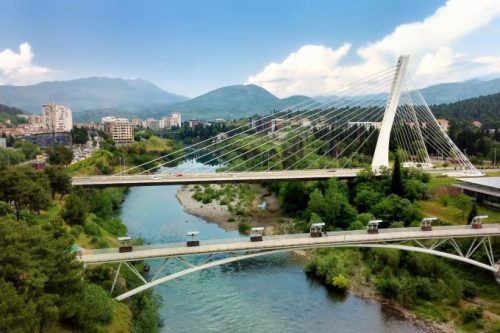
The Millennium Bridge is a key landmark in Podgorica, Montenegro’s capital. iStock/ SbytovaMN
For the Russians, the Balkan country is useful both for extending their sphere of influence in the Mediterranean Sea and for the possibilities, offered by the permissive Montenegrin legislation, to consolidate business and obtain privileges, such as the purchase of citizenship for investments above 450 thousand euros, which allows visa-free travel also within the EU based on bilateral agreements with Brussels.
Russian investments have concentrated on sectors such as construction and tourism, bases of the local economy thanks to which the Montenegrin coast, in the towns of Budva and Tivat, has benefited from the construction of residential buildings, amusement parks, luxury hotels and landing places like Porto Montenegro, projects of an international consortium to which the tycoon Deripaska was connected.
It is estimated that around 20 thousand apartments throughout the country are in the possession of Russian citizens, in several cases to evade illegal practices into which the Russian judiciary had opened investigations for money laundering and the export of capital abroad.
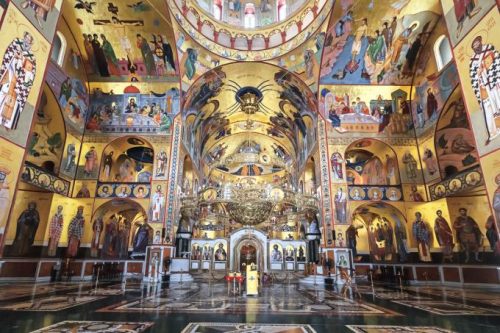
The Interior of the Cathedral of the Resurrection in Podgorica.iStock/maylat
Several investments have been promoted directly by the Kremlin, in particular in the gas and oil supply market, through the subsidiary Lukoil, owner of ten fuelling stations in the country and almost 20% of the local hydrocarbon trade.
The Russian-Ukrainian conflict has had clear repercussions on the Balkan country, one of the favourite tourist destinations for Russians and Ukrainians, with a percentage of over 25% of total local flows.
Despite the economic influence of the Russian oligarchy, Montenegro, albeit reluctantly, formally joined the economic sanctions imposed by the West against Moscow following the invasion of Ukraine in February 2022.
The sanctions have had consequences on the tourism economy, both due to the impossibility of direct flights from Russia and the restrictions on capital and banking circuits, although several cases of circumvention are documented, thanks also to the large border with Serbia, the only European country, with Bosnia and Herzegovina, not to align itself
with these measures.
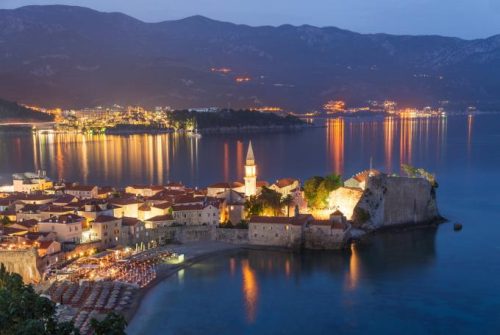
Budva old medieval walled city lights at night. Centre of Montenegrin tourism. 123rf
Furthermore, in Montenegro, there are hundreds of people of both nationalities who have taken refuge to escape the conflict and to avoid conscription imposed by the Kremlin. In Budva, voluntary associations were formed on site which helped their insertion into the local context, promoting harmony between Russian and Ukrainian citizens opposed to the ongoing war, an uncommon convergence in the current European geopolitical context.
Despite the economic dependence on Russian capital, for the majority of Montenegrins, it is important to continue the path towards full integration into the EU, which to date sees 33 negotiating chapters open, but still many unresolved issues, such as the fight against corruption and the state of justice, the Achilles’ heels of the Balkan country.
The ease of tax avoidance has allowed Russian capital to find refuge in Montenegro and it is clear that this is one of the main aspects on which the European Union will judge the country’s progress towards the integration of the entire Balkan mosaic into the European family, an elemental long-term strategy for Brussels. (Open Photo: Montenegro Flag wooden sign with mountains background. iStock/ gustavofrazao)
Lorenzo Pallavicini/CgP



